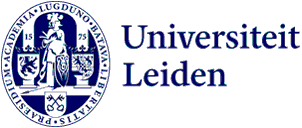40 search results for “living” in the Organisational structure
-
 Marie Guilleray-Guénanff
Marie Guilleray-GuénanffFaculty of Humanities
-
 Nadia Garnefski
Nadia GarnefskiSocial & Behavioural Sciences
-
 Lieke Smits
Lieke SmitsFaculty of Humanities
-
 Tenzin Tsepak
Tenzin TsepakFaculty of Humanities
-
 Serkan Aslan
Serkan AslanFaculty of Science
-
 Samten Yeshi
Samten YeshiFaculty of Humanities
-
 Renée IJzerman
Renée IJzermanSocial & Behavioural Sciences
-
 Berthe Jansen
Berthe JansenFaculty of Humanities
-
 Shekhar Kolipaka
Shekhar KolipakaSocial & Behavioural Sciences
-
 Maaike de Waal
Maaike de WaalFaculty of Archaeology
-
 Letty ten Harkel
Letty ten HarkelFaculty of Archaeology
-
 David de Buisonjé
David de BuisonjéSocial & Behavioural Sciences
-
 Rebekka Grossmann
Rebekka GrossmannFaculty of Humanities
-
 Harry Fokkens
Harry FokkensFaculty of Archaeology
-
 Lieke Bes
Lieke BesFaculty of Archaeology
-
 Nikki Mulder
Nikki MulderSocial & Behavioural Sciences
-
 Judith van Uden
Judith van UdenFaculty of Law
-
 Wessel Kraaij
Wessel KraaijFaculty of Science
-
 Martina Vijver
Martina VijverFaculty of Science
-
 Wei Chu
Wei ChuFaculty of Archaeology
-
 Maarten Jansen
Maarten JansenFaculty of Archaeology
-
 Tullio Abruzzese
Tullio AbruzzeseFaculty of Archaeology
-
 Nathal Dessing
Nathal DessingFaculty of Humanities
-
Area Development
The Housing and Area Development Department (HGO) has tasks at a strategic policy level and an operational level. Guiding/caring for real estate transactions Parcel allocation in the Leiden Bio Science Park (LBSP) for companies and housing development Management of real estate contracts Management…
-
Internationalisation and Community
There are many Liberal Arts & Sciences colleges in the world, but we posit that LUC is unique, both in terms of our globally conscious focus and also due to our increasingly diverse community. We contend that part of what makes LUC exceptional and distinctive is its global profile and we take pride…
-
 Marcel Schaaf
Marcel SchaafFaculty of Science
-
 Willem van der Does
Willem van der DoesSocial & Behavioural Sciences
-
 Sara Brandellero
Sara BrandelleroFaculty of Humanities
-
Research
Leiden Law School has four overarching, interdisciplinary research focus areas: Sustainability and law Technology, law and justice Trust in institutions Law and empirical research
-
Nomination procedure
Nomination is open to managers and colleagues of team members. Also, programme committees can nominate.
-
 Mark Driessen
Mark DriessenFaculty of Archaeology
-
Leidse Academische Gemeenschap
What do we want? Our main goal is simple: a healthy academic community at Leiden University, one in which its members –students and staff members from every segment of the university alike – feel at home and where their voices are heard and listened to. Our goals To help establish…
-
External PhD candidates
Leiden Law School offers the possibility of becoming an external (non-funded) doctoral candidate. External PhD candidates should have a research proposal that fits one of the faculty's current research programmes and the expertise of the intended supervisor(s). At Leiden Law School, three…
-
Leiden Law PhD Community (LLPC)
The Leiden Law PhD Community (LLPC) comprises all internal and external PhD candidates based at Leiden Law School. By organising social events, we aim to create a welcoming community for PhD candidates and encourage them to connect with other PhD candidates across Leiden Law School. PhD candidates are…
-
Standing as a candidate
Candidates who stand for election accept the responsibilities that come with a potential council seat. Students receive financial compensation, while staff members are granted time off from their regular duties. The responsibilities vary depending on the council: The University Council meets every…
-
Members
Staff members in the Faculty Council are elected for 2 years, students for 1 year. For the elections for the Faculty Council of the Faculty of Governance and Global Affairs, a candidate system is used. This means that seats are allocated directly to persons. More information about the election system…
-
Sector Plan SSH
What are the consequences of digitalisation for our security and privacy? What risks does the power of major tech companies pose to citizens, employees, organisations, and states? What role should governments and the European Union play in regulating online platforms? How can human rights, legal…
-
Elections 2025
Elections 2025
-
Faculty Council
The Faculty Council is the university’s highest co-participation body after the University Council. The council represents students and staff, holds rights of consent and consultation on faculty matters, and acts as a sounding board for the Faculty Board. During meetings with the Faculty Board, we practice…
-
 Andrea Evers
Andrea EversSocial & Behavioural Sciences
